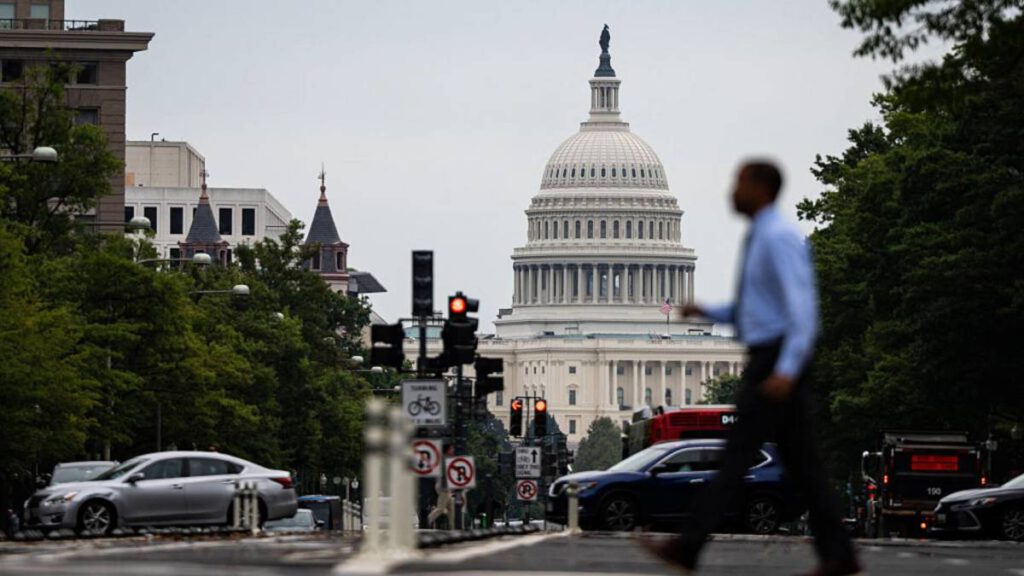As the calendar flips to October, politicians in Washington, D.C., have one word on their minds: shutdown.
The federal government officially shut down much of its operations on Oct. 1 after a Republican-controlled Congress failed to reach a funding deal with the Republican-controlled White House.
The last government shutdown was in 2018, during President Donald Trump’s first administration. This is the 15th shutdown since 1981.
The federal government is present in most of our day-to-day lives, so no matter where you fall on the political spectrum, this shutdown will hurt.
Government agencies affected by the shutdown:
- The Department of Transportation is pausing air traffic controller hiring.
- The Social Security Administration could furlough workers, making it harder to process claims.
- The Department of Health and Human Services says it plans to furlough 32,000 of its 80,000 workers.
- The Food and Drug Administration will not be able to monitor new ingredients in animal foods like meat, milk, and eggs, so it cannot ensure that those products are safe to eat.
- The Department of Defense could withhold pay from U.S. troops.
- As many as 750,000 federal workers could be furloughed at a daily cost of $400 million.
Image source: Drago/Bloomberg via Getty Images
The auto industry will suffer from a government shutdown
This isn’t the first time the government has shut down in recent history, so we can look to the recent past to see how the automotive industry could be affected.
Last time, after 34 days, the shutdown threatened to delay the rollout of new vehicle models in the U.S. by stalling required certifications from the Environmental Protection Agency.
Related: The U.S. Government Just Shut Down: Here’s What It Means for the Economy and Stocks
Nearly 90% of the EPA’s staff will be furloughed as part of the government shutdown, according to the LA Times.
These delays could hamper product launches for car dealers such as General Motors and Ford if they stretch for a significant period of time.
For drivers, the federal government shutdown will primarily affect drivers who work for, or on behalf of, the government.
Trucking firms can continue hauling freight, but compliance reviews and background checks for drivers are paused.
Port slowdowns reduce product inflows, and facilities could remain underutilized, according to LogisticsViewpoints.
Related: Tesla driver shares FSD safety flaw in a concerning video on X
Since states, not the federal government, are in charge of the titling and registration process, the federal government shutdown shouldn’t have much of an effect on most drivers, according to Kelley Blue Book.
Safety work at the National Highway Traffic Safety Administration will continue unabated.
“Because NHTSA has various funding sources that are not subject to annual appropriations, our mission to ensure safety on our roadways will be minimally affected by the government shutdown,” the agency said in 2023 during another government shutdown threat.
The U.S. government shutdown could have far-reaching effects
Republicans are blaming Democrats for the shutdown, and Democrats are blaming President Donald Trump, but the bottom-line effect is that the U.S. government has been partially shut down for the first time in six years.
Lawmakers from both parties met at the White House earlier this week to discuss their issues, but to no avail.
More Automotive:
- Ford, GM react to surprising White House move
- Tesla stock falters, but UBS points out competitive advantages
- Jaguar Land Rover’s cybersecurity nightmare might not end soon
- For BYD, Warren Buffett news is just the latest bump in the road
With no changes, both a Republican and a Democrat bill fell short of the 60 required Senate votes and 218 House votes on Oct. 1, forcing the government to prepare to shut down. It remains to be seen how long the government will be shut.
Ford shares were up 1.6% in early market trading on Oct. 1, while GM traded down slightly and Stellantis gained more than 2%.
Related: Ford, GM have plan for EV buyers worried about $7,500 tax credit




